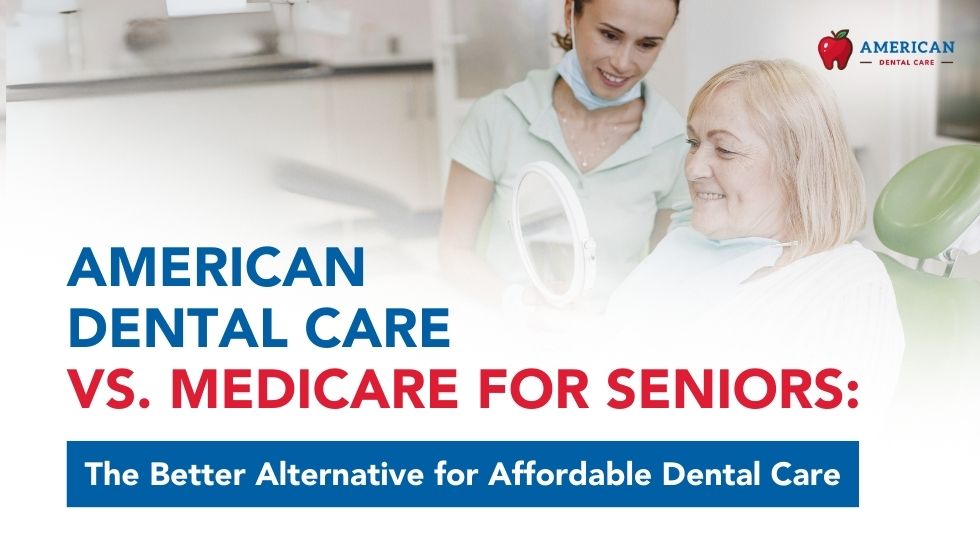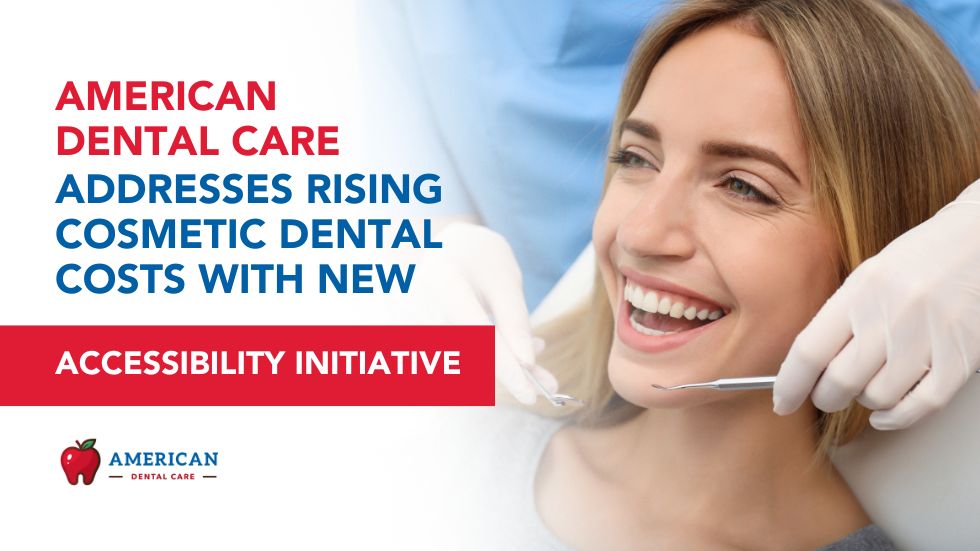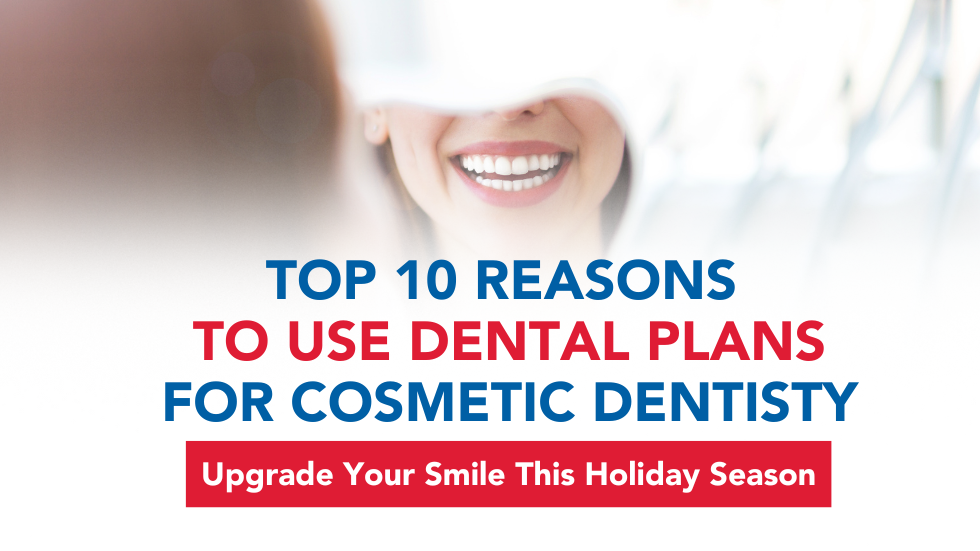Why Dental Coverage for Seniors Matters
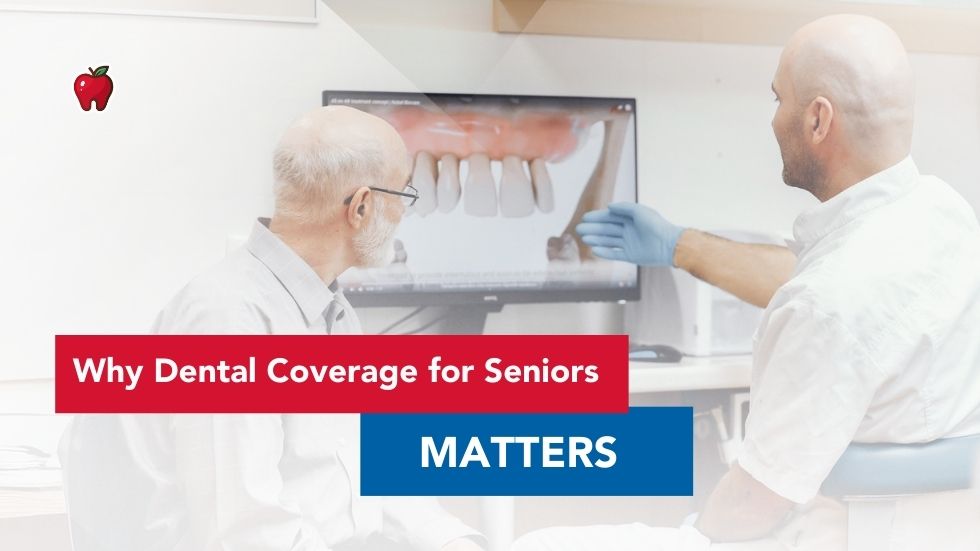
As we age, maintaining good oral health becomes more important than ever. But for seniors, navigating the world of dental insurance can feel like a maze. Traditional dental insurance plans, including Medicare, often come with frustrating limitations that can leave seniors struggling to afford the care they need. While Medicare is a trusted healthcare solution for seniors, it doesn’t provide comprehensive dental coverage.
That’s where American Dental Care comes in—a dental discount plan designed to offer affordable, flexible, and accessible care without the headaches of traditional insurance.
In this blog post, we’ll break down the differences between American Dental Care and Medicare, explore the limitations of traditional dental insurance, and help you decide which option might be the best fit for your dental needs as a senior.
What Is Medicare, and Who Qualifies?

Before we compare American Dental Care to Medicare, let’s take a closer look at what Medicare is and who qualifies for it.
What Is Medicare?
Medicare is a federal health insurance program primarily for people aged 65 and older, though it also covers some younger individuals with disabilities or specific health conditions. It’s divided into several parts:
- Part A (Hospital Insurance): Covers inpatient hospital stays, skilled nursing facility care, hospice care, and some home health care.
- Part B (Medical Insurance): Covers outpatient care, doctor visits, preventive services, and some medical equipment.
- Part C (Medicare Advantage): Offered by private insurance companies, these plans bundle Part A, Part B, and sometimes Part D (prescription drug coverage) into one plan. Some Medicare Advantage plans also include dental benefits.
- Part D (Prescription Drug Coverage): Helps cover the cost of prescription medications.
If you’re looking at preventive dental care, don’t miss 10 Proven Ways to Save Money and Protect Your Smile with Preventive Dental Care.
Who Qualifies for Medicare?
- Individuals aged 65 and older.
- Younger individuals with certain disabilities or conditions, such as End-Stage Renal Disease (ESRD) or Amyotrophic Lateral Sclerosis (ALS).
Medicare and Dental Coverage: What Seniors Need to Know
While Medicare is a lifeline for many seniors, it doesn’t provide comprehensive dental coverage. Let’s take a closer look at what Medicare does—and doesn’t—cover.
Original Medicare (Part A and Part B)
Original Medicare doesn’t cover routine dental care, such as cleanings, fillings, extractions, or dentures. It also doesn’t cover most dental procedures, including crowns, bridges, or implants. The only exception is if dental care is required as part of a covered medical procedure, such as jaw reconstruction following an accident. If you’re relying on Original Medicare, you’ll need to pay out-of-pocket for most dental care.
Medicare Advantage (Part C)
Medicare Advantage plans, offered by private insurance companies, sometimes include dental benefits. However, the coverage can vary widely and often comes with significant limitations.
Why Traditional Dental Insurance Falls Short for Seniors
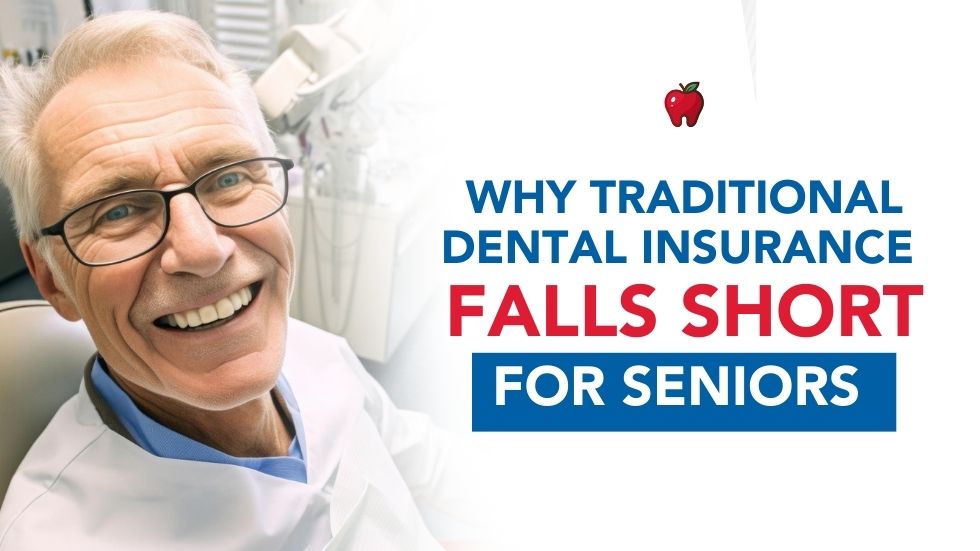
Before we dive into the specifics of American Dental Care and Medicare, let’s talk about the common pitfalls of traditional dental insurance plans. These limitations can make it tough for seniors to get the care they need without breaking the bank.
1. Waiting Periods: Delaying Care When You Need It Most
Imagine needing a dental procedure only to find out you have to wait 6 to 12 months before your insurance will cover it. That’s the reality with many traditional dental plans. Waiting periods are common, especially for major procedures like crowns or implants. For seniors who may already be dealing with chronic health issues, delaying dental care can lead to more serious problems down the road.
The Bottom Line: Waiting periods can leave seniors stuck in pain or discomfort, potentially worsening their oral and overall health.
2. Annual Maximums: Hitting a Coverage Wall
Most dental plans have an annual maximum—a cap on how much they’ll pay for your care in a year. Some Medicare Advantage plans offer caps of $1,000-$2,000 USD annually for dental services. If you need a crown or a bridge, you could easily hit that limit with just one procedure. Once you hit that limit, you’re responsible for 100% of the costs. This can be a major roadblock for seniors who may need extensive dental work.
The Bottom Line: Annual maximums can force seniors to delay or skip necessary treatments, leading to bigger (and more expensive) problems later.
3. Pre-existing Condition Exclusions: Leaving Seniors in the Lurch
Some dental plans won’t cover conditions you had before enrolling. For seniors with a history of dental issues, this can mean no coverage for the very treatments they need most.
For instance, some plans might not cover missing teeth or ongoing gum disease, leaving seniors to pay out-of-pocket.
The Bottom Line: Pre-existing condition exclusions can leave seniors without coverage for critical dental care, making it harder to maintain good oral health.
4. High Out-of-Pocket Costs: A Burden for Fixed Incomes
Even with insurance, seniors often face high out-of-pocket costs like copays, coinsurance, and deductibles. Major procedures like crowns or bridges might only be covered at 50%, leaving seniors to pay hundreds—or even thousands—of dollars out-of-pocket. These expenses can be a major barrier to getting care for those on fixed incomes.
The Bottom Line: High cost-sharing can make dental care unaffordable for many seniors, leading to delayed or skipped treatments.
5. Limited Coverage: Not Enough for Seniors’ Needs
Many traditional insurance plans restrict the types of procedures they cover or how often you can get them. For example, some plans only cover two yearly cleanings or exclude specialized procedures like orthodontics. Even more limiting, cosmetic treatments such as teeth whitening, veneers, and dental implants are almost never covered by traditional insurance, leaving seniors to pay out-of-pocket for these services.
The Bottom Line: Limited coverage can leave seniors without access to the care they need, forcing them to pay out-of-pocket or go without. If you’re considering cosmetic dental work, check out our in-depth guide: Top 10 Reasons to Use Dental Plans for Cosmetic Dentistry to learn how discount dental plans can help make these treatments more affordable.
Why American Dental Care Might Be the Better Option
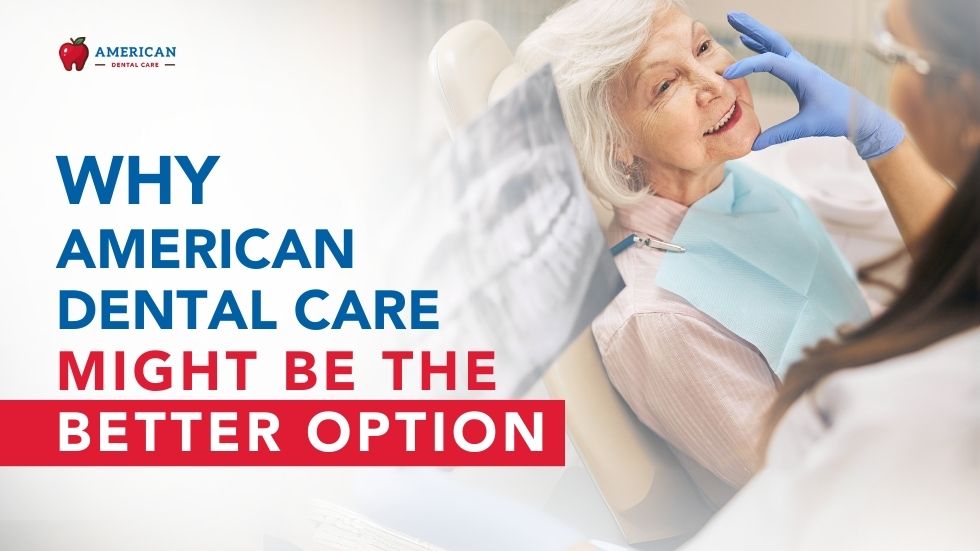
Given the limitations of traditional dental insurance, many seniors are turning to American Dental Care, a dental discount plan that offers a more flexible and affordable alternative. Here’s how it works and why it might be a better fit for seniors.
What Is American Dental Care?
American Dental Care isn’t insurance—it’s a discount plan. Members pay an annual fee and get access to reduced rates on a wide range of dental services, from routine cleanings to major procedures like crowns and bridges. Unlike traditional insurance, there are no waiting periods, annual maximums, or exclusions for pre-existing conditions and cosmetic procedures.
The Benefits of American Dental Care for Seniors
- No Waiting Periods:
Need care right away? With American Dental Care, you can start using your plan as soon as you enroll. No waiting around for coverage to kick in. - No Annual Maximums:
There’s no cap on how much you can save with American Dental Care. Whether you need one cleaning or multiple procedures, you’ll keep getting discounts all year long. - No Pre-existing Condition Exclusions:
Have a history of dental issues? No problem. American Dental Care includes all members, regardless of pre-existing conditions. - Lower Out-of-Pocket Costs:
With discounts of up to 85% on dental services, seniors can save significantly on out-of-pocket costs. This is especially helpful for those on fixed incomes. - Wide Range of Services:
From routine cleanings to major procedures, American Dental Care offers discounts on almost every type of dental service you might need.
How Much Can You Save with American Dental Care?
One of the biggest advantages of American Dental Care is the potential for significant savings. Here’s a breakdown of how much you can save on common dental procedures:
Complete Denture Procedure: Save 59%, reducing costs from $2,400 to $978.
- Routine Dental Cleaning: Save 55%, reducing costs from $130 to $59.
- Dental Filling: Save 62%, reducing costs from $230 to $88.
- Deep Cleaning (Per Quadrant): Save 58%, reducing costs from $350 to $148.
- Complete Denture Procedure: Save 59%, reducing costs from $2,400 to $978.
- Periodontal Scaling & Root Planing (4+ teeth per quadrant): Save 58%, lowering costs from $350 to $148.
- Resin/Composite Fillings: Save 50-64%, reducing costs from $230-$465 to $88-$178, depending on the tooth and number of surfaces needing filling.
With American Dental Care, seniors can access these savings immediately, without worrying about annual limits or waiting periods.
Making the Right Choice for Your Dental Health

Navigating dental coverage as a senior can be challenging, especially given the limitations of traditional dental insurance plans. Both American Dental Care and Medicare offer potential solutions, but they come with their own set of pros and cons.
American Dental Care is an excellent option for seniors who need immediate access to a wide range of dental services without the restrictions of traditional insurance. It offers significant discounts, no waiting periods, and no annual maximums, making it a flexible and cost-effective choice for many seniors.
On the other hand, Medicare plans may offer some dental benefits, but they often come with significant limitations, including annual maximums, waiting periods, and high cost-sharing. Seniors considering Medicare Advantage should carefully review the dental benefits and associated costs to determine if it meets their needs.
Ultimately, the best choice depends on the senior’s dental health needs, financial situation, and preferences. By understanding the limitations of traditional dental insurance and exploring alternative options like American Dental Care, seniors can make informed decisions that support their oral health and overall well-being.
For more information on how American Dental Care can help you save on dental services, visit our website or contact our customer support team today. Don’t forget to follow us on LinkedIn, Facebook, and Instagram. Your smile—and your wallet—will thank you!

